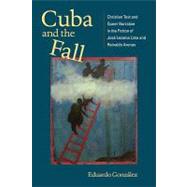Cuba and the Fall
, by Gonzalez, Eduardo- ISBN: 9780813929811 | 0813929814
- Cover: Hardcover
- Copyright: 7/1/2010
The literature of Cuba, argues Eduardo González in this new book, takes on quite different features depending on whether one is looking at it from "the inside" or from "the outside," a view that in turn is shaped by official political culture and the authors it sanctions or by those authors and artists who exist outside state policies and cultural politics. González approaches this issue by way of two twentieth-century writers who are central to the canon of gay homoerotic expression and sensibility in Cuban culture: José Lezama Lima (1910--1976) and Reinaldo Arenas (1943--1990). Drawing on the plots and characters in their works, González develops both a story line and a moral tale, revolving around the Christian belief in the fall from grace and the possibility of redemption, that bring the writers into a unique and revealing interaction with one another.The work of Lezama Lima and Arenas is compared with that of fellow Cuban author Virgilio Piñera (1912--1979) and, in a wider context, with the non-Cuban writers John Milton, Nathaniel Hawthorne, William Faulkner, John Ruskin, and James Joyce to show how their themes get replicated in González's selected Cuban fiction. Also woven into this interaction are two contemporary films -- The Devil's Backbone (2004) and Pan's Labyrinth (2007) -- whose moral and political themes enhance the ethical values and conflicts of the literary texts. Referring to this eclectic gathering of texts, González charts a cultural course in which Cuba moves beyond the Caribbean and into a latitude uncharted by common words, beyond the tyranny of place.







